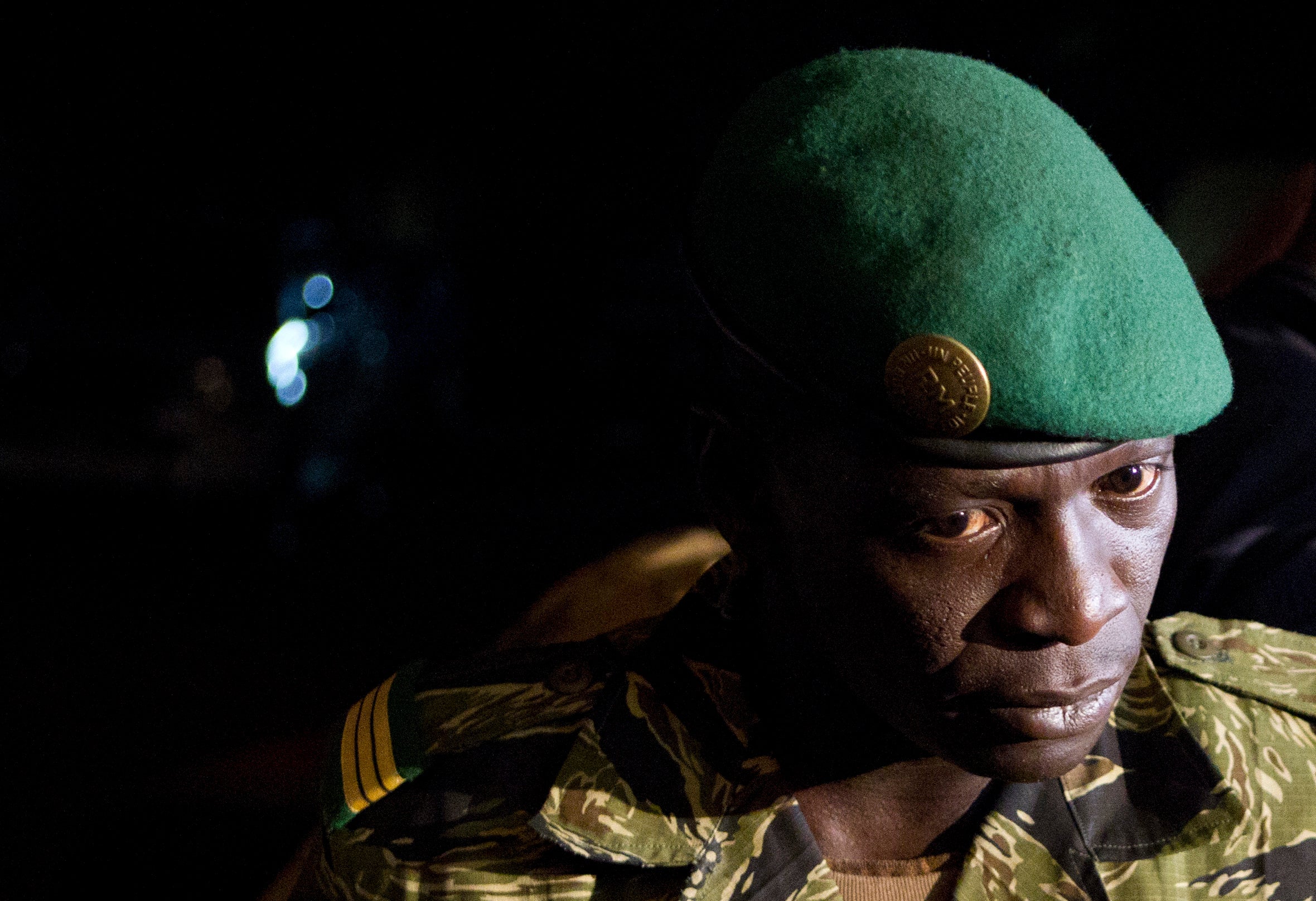Ex-Mali coup leader won't stand trial for 2012 killings
An appeals court in Mali has ruled that the man behind the country's 2012 coup will no longer face criminal charges

Your support helps us to tell the story
From reproductive rights to climate change to Big Tech, The Independent is on the ground when the story is developing. Whether it's investigating the financials of Elon Musk's pro-Trump PAC or producing our latest documentary, 'The A Word', which shines a light on the American women fighting for reproductive rights, we know how important it is to parse out the facts from the messaging.
At such a critical moment in US history, we need reporters on the ground. Your donation allows us to keep sending journalists to speak to both sides of the story.
The Independent is trusted by Americans across the entire political spectrum. And unlike many other quality news outlets, we choose not to lock Americans out of our reporting and analysis with paywalls. We believe quality journalism should be available to everyone, paid for by those who can afford it.
Your support makes all the difference.The man who overthrew Mali’s president in 2012, former Gen. Amadou Haya Sanogo, will no longer stand trial on charges he had 21 soldiers killed after a failed counter-coup that same year, an appeals court ruled Monday.
The association representing the victims' families declined to comment on the decision, which follows a 2018 law aimed at fostering reconciliation in Mali. However, one woman who had pushed for criminal charges in connection with the 2012 violence said she now will press for the International Criminal Court to pursue a case against Sanogo.
“This decision is a disgrace for Malian justice," said Marima Soumare, who filed a complaint against the junta for kidnapping and rape during the events of 2012. “We cannot let someone go who killed his brothers in arms and raped women with impunity.”
The Malian government has said it will compensate the victims' families with housing and financial reparations based on the victim's rank, ranging from 15 million CFA ($27,285) to 40 million CFA ($72,760). The victims' minor children will also be considered wards of the state under the deal.
Human rights groups have decried the long quest for justice for the victims, whose bodies were found in a mass grave. The government of the West African nation, though, had expressed concern that the trial could inflame tensions in the already volatile country.
Sanogo and his co-defendants did not go on trial until late 2016 and then the case was swiftly adjourned. The trial was supposed to start up again in 2020 but no date was then set for it to resume and Sanogo was released from custody.
Witnesses have told Human Rights Watch that they last saw the soldiers — bound and blindfolded — being loaded onto a truck in the middle of the night. One witness later provided the group with a handwritten list of the victims’ names.
The political upheaval of Mali's 2012 coup and the ensuing power vacuum paved the way for Islamic extremists to further their grip in the country's north, a crisis that has spread to central Mali and has spilled over into neighboring Burkina Faso
At the time of the coup, Sanogo was backed by the rank-and-file soldiers who marched on the presidential palace and toppled President Amadou Toumani Toure. Sanogo, though, was opposed by the elite paratroopers known as the Red Berets who made up the ousted president’s guard. When they attempted to lead a counter-coup the following month, human rights groups say Sanogo responded with force.
The counter-coup ultimately failed, though Sanogo later handed over power to a transitional civilian government and left after negotiating for a salary to be given to him as a former head of state.
___